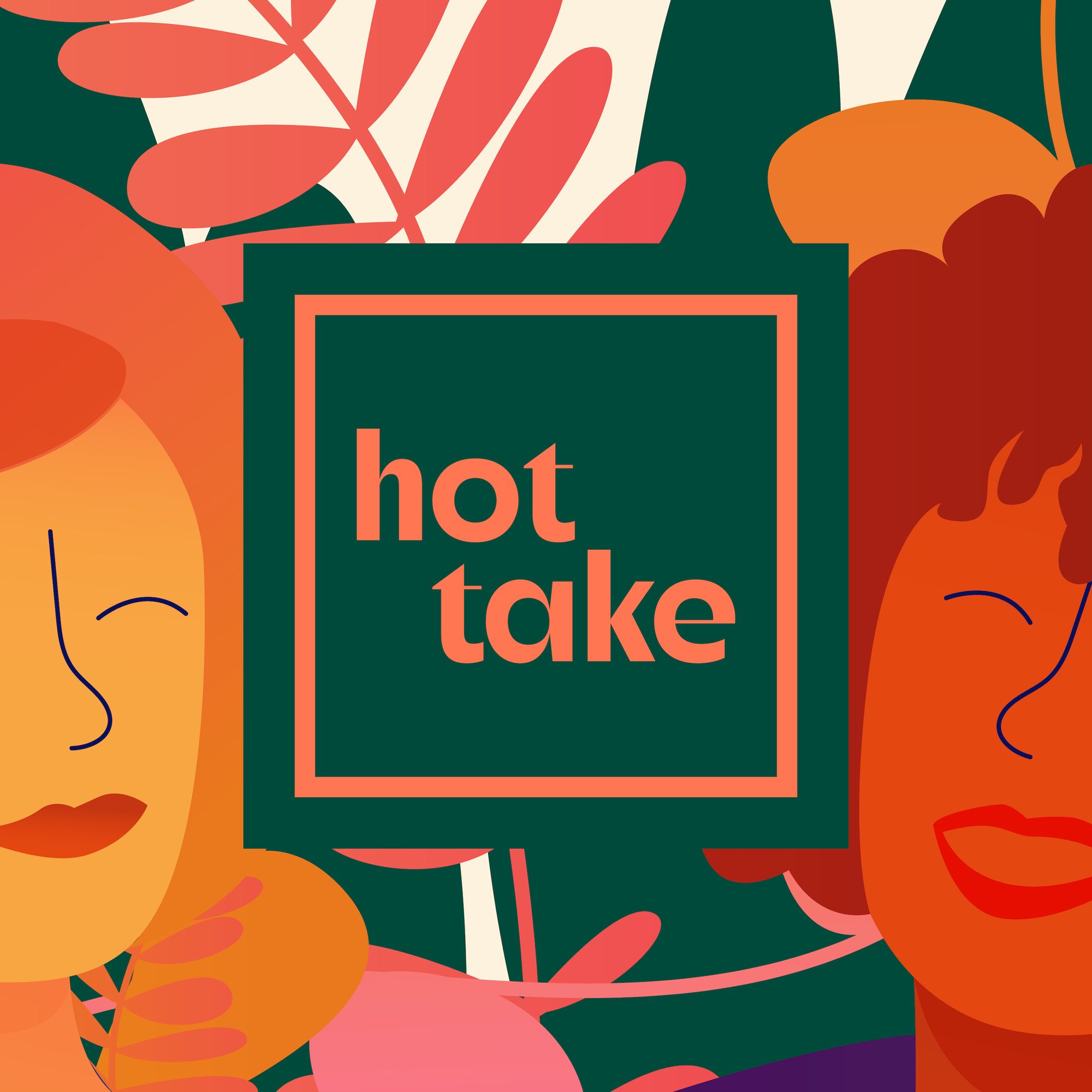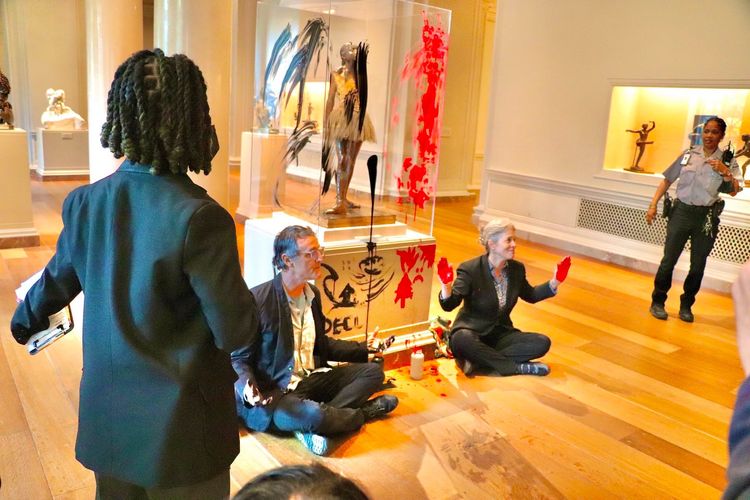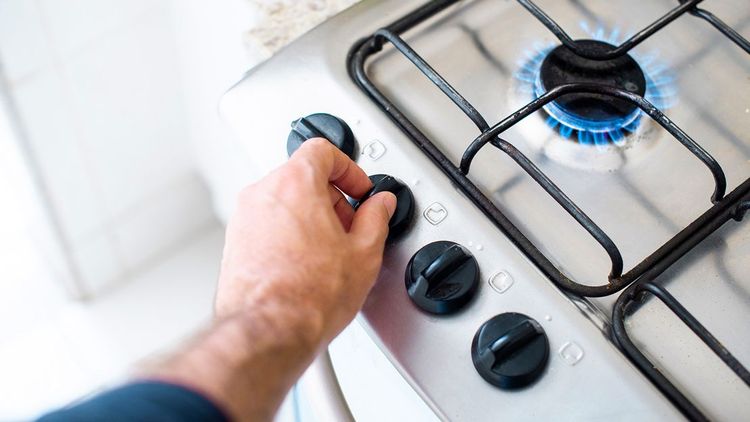Making the Case

Hey Hot Cakes!
Welcome to Hot Take! Your weekly (at least) newsletter surveying the state of the climate crisis and all the ways we’re talking—and not talking about it! We give you a round up of the latest climate stories and articles of the week, plus exclusive original reporting and commentary from us. Oh, and who are we? Amy Westervelt, long-time climate journalist with more seasoning than an everything bagel, and Mary Annaïse Heglar, a literary writer known for her essays on climate, race, and emotion—and her enthusiasm for dad jokes!
In addition to this newsletter, we have a podcast and a store!
It’s time to talk about climate!
Subscribe nowGive a gift subscription
Making the Case
By Mary Annaïse Heglar
The dust had barely settled on the ballots when we started hearing it: progressivism killed the Democrats this election. All you people advocating for Medicare for All, a Green New Deal, Defunding the Police, Abolishing ICE—you’re the problem! Amy wrote about this some last week in the newsletter, but there’s still so much left to say so we dedicated an episode to it. Normally, we have journalists on the show, but this time since we were dissecting a political narrative and not a media narrative, we talked to Rhiana Gunn Wright, one of the original authors of the Green New Deal and one of our favorite people in the world.
We get into all the ways that progressivism actually did not kill the Democrats this election cycle and that the party owes a major debt to its progressive wing, both in the past and the present. We talk about who white supremacy has been rotting the country and the party for centuries, and how that’s a conflict white liberals can’t afford to avoid, no matter how much their instincts tell them to be passive aggressive.
Furthermore, we talk about all the ways that progressive values and policies actually do resonate, if you know how to talk about them. And it’s not about polling, it’s about people.
Further reading:
- The 2020 Election Was a Reminder of White Supremacy's Hold on the US by Rhiana Gunn Wright in Teen Vogue
- Dem leaders warn liberal rhetoric could blow Georgia races by Heather Cagle and Sarah Ferris in Politico
- Warner blames Democratic losses on 'defund the police' by Tal Axelrod in The Hill
- Alexandria Ocasio-Cortez on Biden’s Win, House Losses, and What’s Next for the Left by Astead Herndon in New York Times
- The Green New Deal Didn't Sink Democrats by Brian Kahn in Earther
- Opinion | Democratic leaders play a ridiculous blame game with progressives by James Downie in Washington Post
We Need More Climate Media, Not Less
By Mary Annaïse Heglar
Amy and I launched the Hot Take podcast exactly one year ago this week. We started by doing a suite of episodes that looked back at the climate story in the era of Tr*mp. The first such episode focused on 2016 and 2017, combined. That was about an hour and a half. Then, we did 2018, on its own. That was about an hour and a half. Then, we got to 2019 and the episode was nearly two and a half hours and it was hard to cut it down to that. By the time Amy and I finished recording, I remember that we both had sore throats.
What changed, you ask? Well, a lot of things happened, but one of the biggest changes came in the form of the 2018 IPCC report, which laid out in no uncertain terms how dire the crisis already was and how bleak a future warmed by 1.5 degrees would be and how much work would need to be done right now to avoid that threshold. Climate media, as well as climate activism, was galvanized by that report, and it brought a huge diversity of new voices and outlets into the fold. That diversity, in turn, changed the way we think and talk about climate change forever. Gone was the myth that people of color don’t care about climate change. Gone was the myth that one had to be perfectly pure and green in order to be part of the conversation. Gone was the myth that “we” did this to ourselves.
The walls of propaganda came tumbling down.
We’ve come a long way from the time we launched Hot Take, too. In particular, climate newsletters and podcasts are springing up all over the place now. Amy and I see that as cause for celebration (and not as a declaration of competition). Podcasts and newsletters are extremely open and experimental spaces, which means they allow folks to experiment with storytelling in a way that traditional outlets and their gatekeepers would never tolerate. They are easily accessible for content creators, since there’s little overhead costs associated with creating them, and newsletters especially are easily monetized, which means people often cut out of the big media outlets can finally get paid for their ideas. Podcasts, furthermore, allow people to model what it’s like to talk about climate change, which can embolden the listener to begin having those conversations on their own.
Especially as climate coverage in traditional outlets continues to plummet (down 30 percent from a year ago), we’re calling it now: podcasts and newsletters will be the space to watch as the climate saga continues.
Low Key, the Election WAS Rigged
By Mary Annaïse Heglar
In the days since the election results were announced, I’ve been on a rollercoaster of concern about Tr*mp’s brazen attempts to subvert both the popular vote and the Electoral College. All the smart people I know and trust are saying that his attempts are doomed, at least insofar that there’s no realistic path for him to manipulate this into a second consecutive term. It also bodes well that none of his attempts have been successful in court and it doesn’t look like he’s building a lot of momentum elsewhere either.
At the same time, though, I remain frustrated with the way we talk about this. On the left, folks are tripping over themselves to mock and ridicule it. To claim that it’s some sort of “last gasp” or a “toddler’s temper tantrum.” All of which, I think, lets him and his cronies off the hook entirely.
I, for one, do believe the election was rigged, and I believe that Tr*mp rigged it. As Amy has pointed out a million times on Hot Take and on Drilled, these right wing folks have a history of confessing by accusation. If they say their opponent did it, it’s because they did. Therefore, I don’t think we’re seeing a sore loser so much as a sore cheater. He’s complaining about election rigging while nakedly rigging the election. If he’s doing that after the election and out in the open, imagine what he did before the election when no one could see. After all this is the man who invited Russia to intervene in 2016. Why aren’t we looking into that?
Bare minimum, his complaints of election rigging are an admission of incompetence. If the election could be so badly stolen on his watch, I don’t understand how his followers still look at him and see a strong leadership. Unless, of course, that wasn’t what they were looking for at all.
Eta, Iota and More
By Amy Westervelt
Back-to-back hurricanes devastated Honduras and parts of Nicaragua this month, but the storms were barely a blip on the media’s radar, what with Covid spiking and the slow-motion coup happening in the U.S. That sort of negligence can mean life or death for people on the ground, though, because people don’t donate for relief efforts they don’t know about. In case you missed them, here’s a quick rundown of the month’s extreme weather events:
- Hurricanes Eta and Iota (Honduras and Nicaragua) Eta hit the Nicaraguan coast on Nov. 3, displacing more than 10,000 people and killing 137. Less than two weeks later, Hurricane Iota came barreling through along a similar path, destroying Providencia Island, Colombia, and killing dozens in Nicaragua, Honduras, and Colombia. Large swaths of Honduras were left without Internet or roads, and the country’s main airport was submerged. It won’t reopen until December. Parts of all three countries got as much rain in two weeks as they usually get in a year. (Read more in The Washington Post and The Guardian. If you want to donate, this thread links to mutual aid efforts.)
- Typhoons Vamco and Goni (The Philippines and Vietnam) More than 350,000 people in Vietnam and the Philippines were evacuated as Typhoon Vamco made its way toward Manila November 12th. More than 10,000 in the Philippines were still displaced from Typhoon Goni, which hit just 10 days earlier. 270,000 homes were destroyed, and at least 60 people were killed by the typhoons. (Read more in The Guardian. If you want to donate, this thread links to mutual aid efforts.)
- West Coast Wildfires The fires on the West Coast are mostly contained, but that doesn’t mean the impact is over. Now the states are doing the hard work of cleaning up over 4 million acres of fire damage… and fire season is still not over. The Thomas fire—the state’s largest fire before this year—happened in December. (Read more in The Los Angeles Times and connect with a West Coast mutal aid effort here)
- Gulf Coast Hurricanes: The Gulf Coast has been walloped by hurricanes this year, so much so the recovery is just able to get off the ground. Here’s some folks taking the matter into their own hands.
Baloo Is Home!
Last week, I found out that my cat Baloo, who’d never been sick in his life, was in a state of acute kidney failure. After taking him from the vet to the emergency room in New York and then finally to the hospital in Philadelphia for a complicated emergency surgery, I’m thrilled to tell you that he’s recuperating back at home. Those of you who contributed to the fundraiser or prayed for him or sent words of encouragement, I want you to know that that meant the world to me and helped to restore my faith in humankind.
Baloo is still not out of the woods and probably won’t be for the rest of his life. The procedure he had to have will require consistent monitoring of his kidneys and ultrasounds to make sure his implant is working properly and we might even have to do the whole thing all over again one day. But he’s only 8 years old and he’s worth it.
P.S. get you a friend like Amy, who will start you a gofundme before you can even give the okay and will stay on the phone with you outside of the emergency room until your IRL friend can get there. She’s the real MVP.

Digest
Rising Temperatures, Rising Seas
Scientists link record-breaking hurricane season to climate crisis, by Jeff Ernst for the Guardian
1.7 billion people hit by climate disasters in past decade by Pipa Neil for the Environment Journal
Climate Change Has Hit the U.S. Harder Than Any Other G20 Country by Dharna Noor for Gizmodo
When temperatures soar, dog ticks turn to human flesh, by Zoya Teirstein for Grist
Climate Change Is Making Winter Ice More Dangerous, by Veronica Penny for the New York Times
Always the Climate Election
These freshman House Republicans might actually care about climate change, by Zoya Teirstein
For progressives, the House is as big a problem as the Senate By Shawn Zeller for Roll Call
Joe Biden Can’t Compromise With the Rising Seas, by Kate Aronoff for The New Republic
Blue States Will Have to Lead the Climate Fight Under Biden, Too, by Molly Taft for The New Republic
Can Biden Keep His Promise to Make Farms Climate Friendly? By Charlie Mitchell for The New Republic
Climate Accountability
1% of people cause half of global aviation emissions - study, by Damian Carrington for The Guardian
Climate Warnings on Gas Pumps Will Soon Appear in the First US City, by Dharna Noor for Earther
Climate Activists Want Biden To Bar Appointees With Fossil Fuel Ties, by Jeff Brady for NPR
Glimmers of Hope
Meet the 25 European startups fighting climate change
What could a good green recovery plan actually look like? By Fiona Harvey for The Guardian
Climate in Culture
It’s kids vs. parents in this award-nominated climate novel, by Joseph Winters for Grist
Greentrolling: A ‘maniacal plan’ to bring down Big Oil, by Kate Yoder for Grist
'I Am Greta' Has a Message We All Need to Hear by Leah Stokes in Earther
Justice Is Justice Is Justice
A young Ugandan climate activist’s challenge to Joe Biden by Jariel Arvin for Vox
Boris Johnson says Britain needs its own Green New Deal by Karla Adam of the Washington Post
Plus More
Why we need policies to reduce meat consumption now by Lili Pike for Vox
Johnson, Seen as a Trump Ally, Signals Alignment With Biden By Mark Landler for the New York Times
What did the flower say after he told a joke?
I was just pollen your leg!






Only paid subscribers can comment.
Please subscribe or sign in to join the conversation.